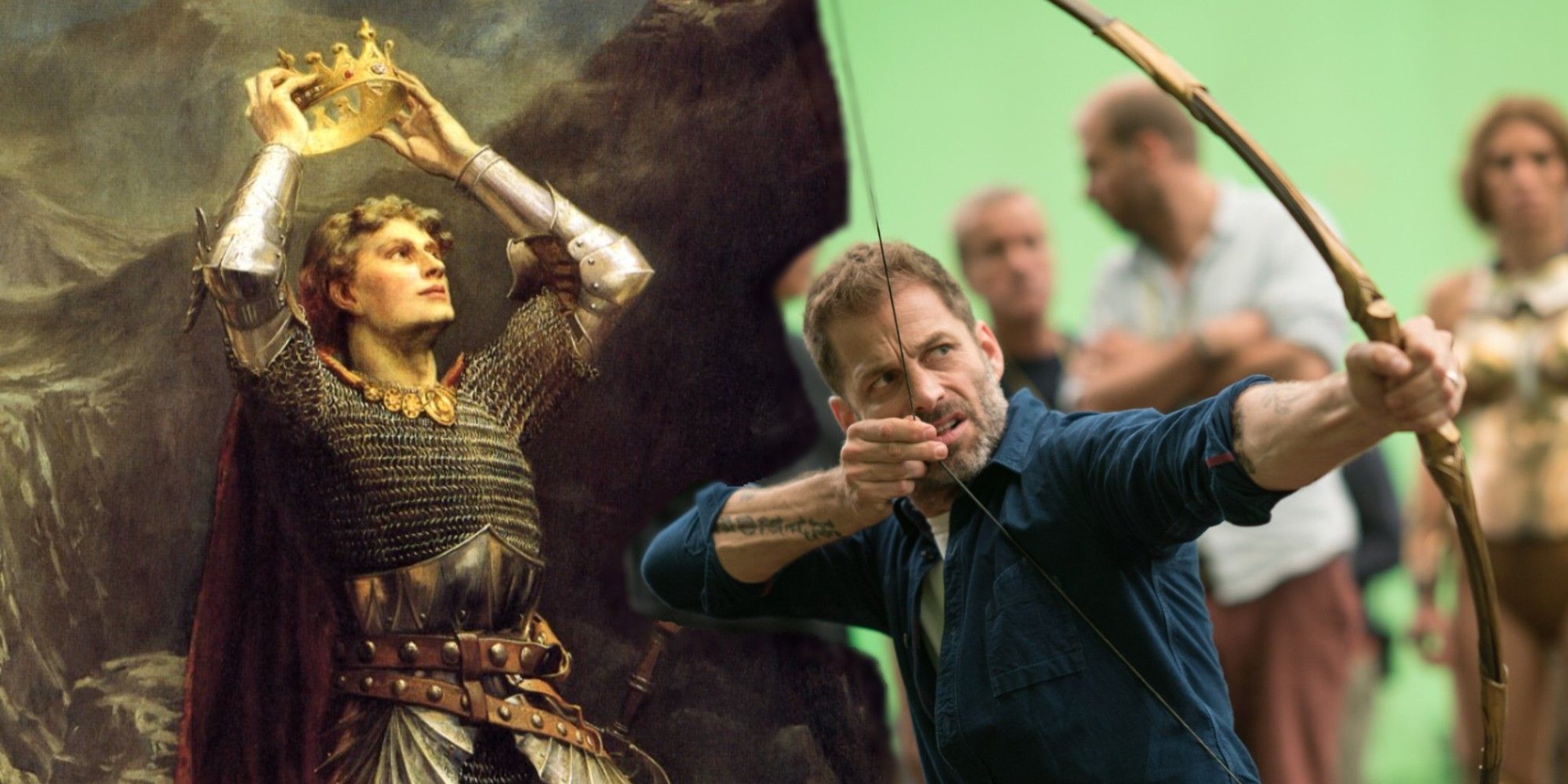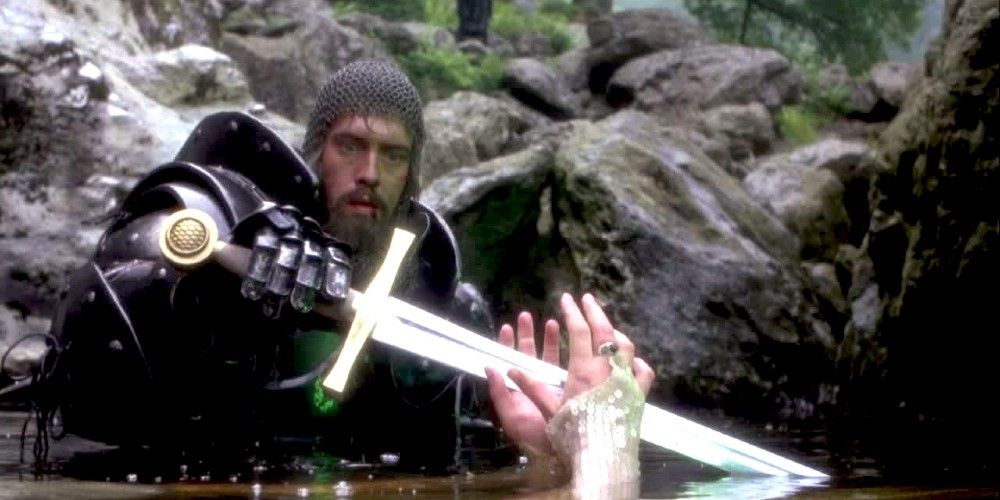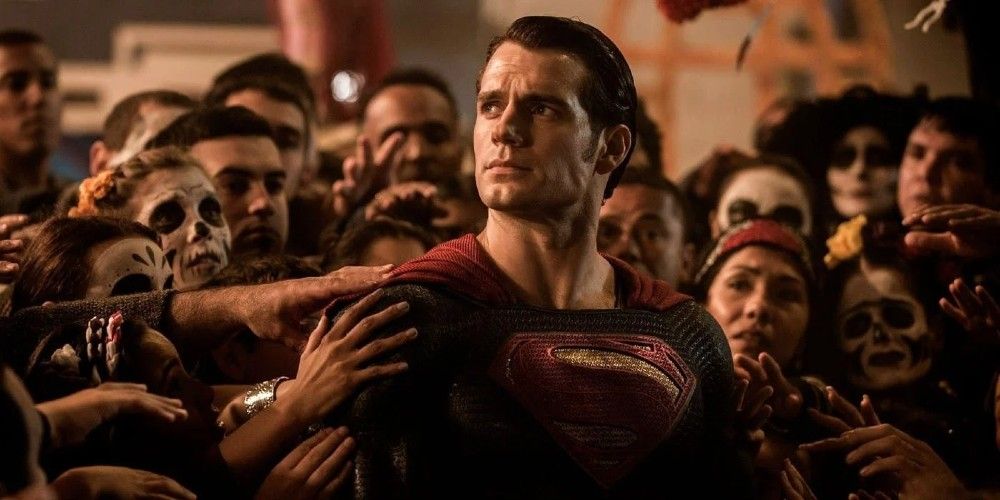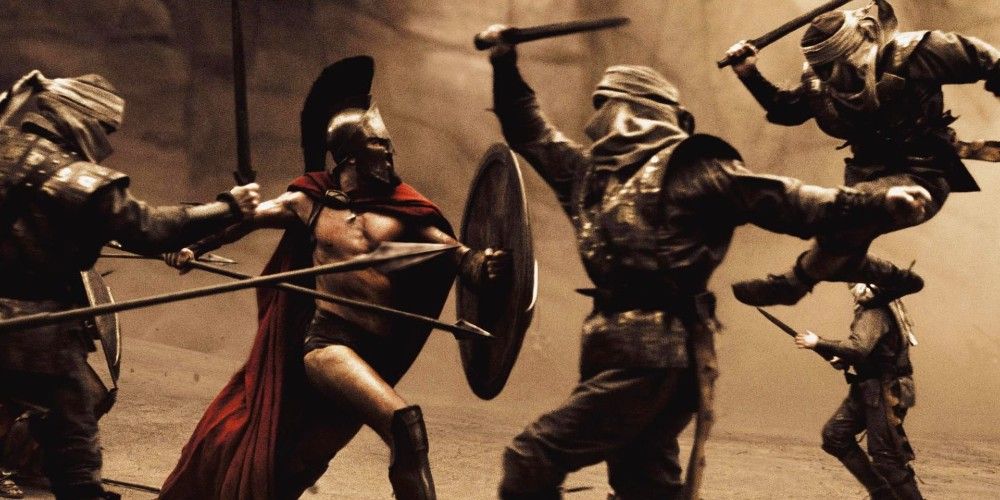During an interview with the “I Minutemen,” Zack Snyder revealed he has “been thinking about” a “faithful retelling of that Arthurian mythological concept.” Despite being a relatively off-hand comment, the legends of King Arthur could prove fertile ground for Snyder. After all, they are public domain anyway and have been reimagined throughout the centuries, with the “definitive source” of Thomas Malory’s 15th century Le Morte d’Arthur itself a reworking of even older sources.
Such ancient mythology was recently rearranged in Guy Ritchie’s King Arthur: Legend of the Sword (2017), produced by Snyder’s long-time partner Warner Brothers. Although Ritchie’s film was a commercial failure, the same source material could prove a perfect next step for Snyder away from the obligations of the DC Universe.
Justified or not, from Snyder’s perspective his vision of the DCEU has been mocked and criticised, resulting in Justice League being “stolen” from him during a family tragedy. Sure, Snyder eventually “won” by getting a director’s cut of Justice League released on HBO Max, but surely this is only cold comfort after the fact? Snyder is a filmmaker who has become absorbed into this one intellectual property, one which likely has bad associations for him, so the best thing for Snyder is to finish with Justice League and move on.
In the same Minutemen interview, Snyder says “there’s no interest and/or appetite to do more of these movies.” But perhaps this is best for all involved. It frees Snyder to pursue other projects with less baggage attached to them. Snyder has Army of the Dead coming to Netflix later in 2021, which can function as a fun palate-cleansing linking back to his first film, Dawn of the Dead (2004). Yet a King Arthur film is a franchise with greater austerity, which would allow Snyder to unleash his idiosyncratic sensibilities upon a more malleable property. For although King Arthur is a widely known legend, its sheer age means there is far more wiggle room for interpretation. Works as diverse as Netflix’s Cursed (2020-), BBC’s Merlin (2008-2012), The Sword in the Stone (1963), First Knight (1995) and Excalibur (1981) have played around with the same material.
Excalibur is also Zack Snyder’s favorite film. In Batman v Superman (2016) it is on the marquee when the Waynes are killed and it appears the Arthurian knights helped bury a Mother Box in Justice League. A DGA Quarterly article has Snyder excitedly explain his love for Excalibur, adoring how John Boorman adapted these classic fairy-tales into a grandiose R-rated interpretation. Excalibur is a slightly bonkers movie, stuffing the entire Arthurian Cycle – from the conception of Arthur (Nigel Terry) to retrieving the Holy Grail to his death – into one 140-minute feature. Yet Excalibur is so sincere about its overwhelming lore, and so opulent and lurid in its set-design, that it is incredibly endearing. Its combination of fantastical myths and tactile “adult” imagery clearly resonated with Snyder, alongside Arthur’s conflict between being a predestined legendary King and a mortal fallible man.
Snyder’s always been struck by “legends,” and how people become shaped into more glorified versions of themselves. Only one of his 8 directed films, Sucker Punch (2011), is not based on preexisting material. Even his animated Legends of the Guardians: The Owls of Ga'Hoole (2010) is adapted from a series of children's books about legendary warrior owls. And Sucker Punch itself is explicated about distorted reality into a more fantastical version of itself. Its characters use these escapist layers to reinterpret the world around them. His DC movies not only grapple with the legendary status of Batman and Superman, but how they relate to mythological conceptions of Jesus and Satan. Yet in his exultation of such legendary archetypes, Snyder often loses track of their actual characters.
The strange thing about Zack Snyder is he makes superhero movies while being seemingly uninterested in super-heroics. Both Man of Steel (2013) and Batman v Superman are interested in “power,” but it's more about “who” gets to wield such power rather than to “what” end. His Superman (Henry Cavill) questions whether he is an everyman or Christ-like savior – much like Arthur in Excalibur – but it's predominantly internal, with minimal interaction with any civilians. Indeed, Superman appears intentionally aloof whenever he has to "save" them.
Likewise, 300 (2006) makes passing references to “defending Sparta,” but really the film is about Leonidas (Gerard Butler) proving his masculine self-worth against the invading Persians, more invested in dying a noble death than actively defending anyone. Even Watchmen (2009), a text already ambivalent about superheroes, intensifies the bone-crunching fighting of its anti-heroes and focuses upon the uncompromising “integrity” of Rorschach (Jackie Earle Haley). Snyder is interested in the awesome might of heroic figures, not in their “moral” deeds.
King Arthur is therefore a better fit, since its old-fashioned legends are preoccupied with gallant notions of “honor” rather than crime-fighting. Arthur may be the ruler of Camelot, but his tales are largely unconcerned with how he actually interacts with his subjects. Instead, Arthurian Legends are preoccupied with grand supernatural forces testing the will of the Knights: trials like the Sword in the Stone or the Holy Grail. Snyder’s Superman always seems burdened by his “destiny,” his extreme powers forcing him to rescue people that are ungrateful and he feels emotionally detached from. Such concerns gel much better for King Arthur, as the duty is literally thrust upon him through Excalibur, and the atmosphere of ancient myths and customs is a better setting for Snyder’s interests.
This is why 300 is one of Snyder’s most successful films. Its archaic idealization of hyper-masculinity and gloriously bloody warfare operates on an operatic hyperreal level. 300 is essentially Spartan propaganda in motion, Snyder deforming the Persians into faceless beasts and minotaur and elevating the half-naked Spartan warriors into Renaissance sculptures. The extreme slow-motion and orange color-grading push the stylization further. It’s unlikely Snyder intended 300 to be self-aware propaganda akin to Starship Troopers (1997), but the glossy myth-making and unrestrained indulgences play into Snyder’s biggest strengths.
Love him or loathe him, Zack Snyder has a distinct cinematic language. He knows how to construct iconic moments and memorable visuals. He is comparable to Michael Bay, as both testosterone-driven filmmakers operate primarily in brash popcorn blockbusters while leaving their distinct auteur signature. And while there is a larger conversation about how Hollywood keeps giving second chances to (and who they don’t even give first chances to), there is enough room for their pulpy machismo films too.
For a while now, Snyder has appeared at odds with the material he’s been making. But the Arthurian Legends could be the ideal break Snyder needs, a template to explore his idiosyncratic filmmaking upon. It may not be for everyone, but King Arthur is classic mythology from which Snyder can draw, nailing down that Holy Grail he’s spent his filmography pursuing.




